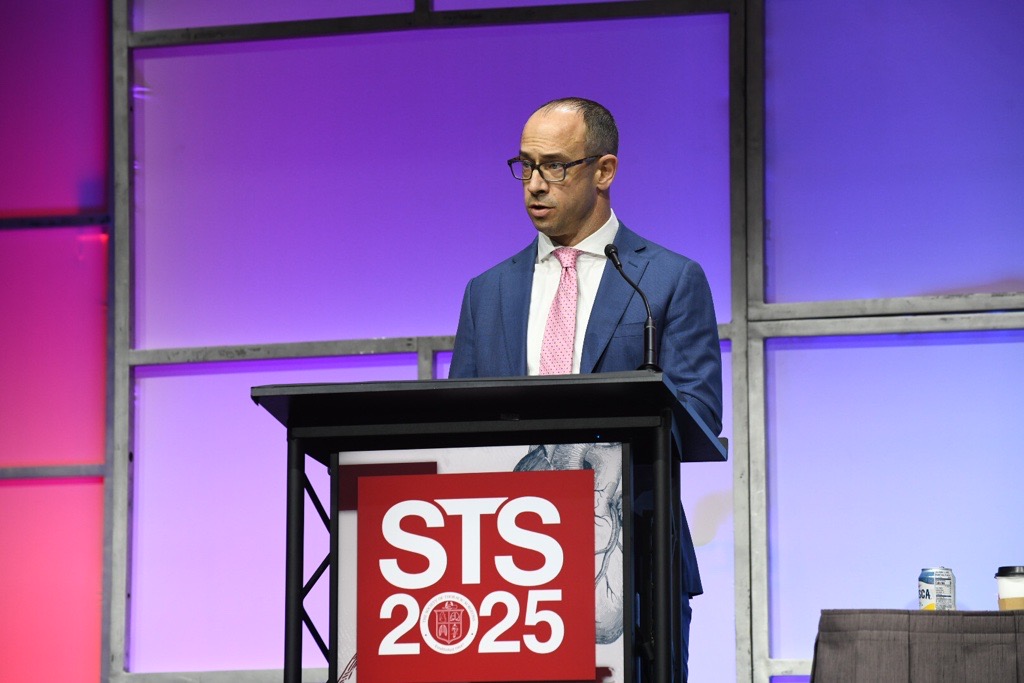Surgery for Stage IV Lung Cancer: Dr. Antonoff Shares Insights From STS 2025 Session
By Mara B. Antonoff, MD, Cecilia Brown - Last Updated: January 28, 2025Mara B. Antonoff, MD, FACS, of the University of Texas MD Anderson Cancer Center, joined Lung Cancers Today to discuss a session on operating in stage IV lung cancer held at the 61st Annual Meeting of the Society of Thoracic Surgeons (STS) in Los Angeles.
She explained why it was critical to hold the session, which was titled “Surgery for Stage IV Lung Cancer: Getting Surgeons in the Game for Advanced Disease.”
“We’ve made a lot of strides in our care for patients with stage IV lung cancer and the role of local therapy—particularly the role of surgery—in recent years,” Dr. Antonoff said. “Yet, these practices aren’t well-penetrated into our institutions and our hospitals.”
Dr. Antonoff, who is an associate professor and program director of education in thoracic and cardiovascular surgery at the MD Anderson Cancer Center, opened the session with a presentation titled “Why Are We Operating in Stage IV Disease?”
“It’s pivotal that we help surgeons understand first of all, why we’re operating on stage IV disease, how we can help people, and also to address how to go about doing it,” she said. “What are the metrics of a high-quality operation in this space? Who are the right patients? What’s the right timeline? And how do we get there? I think this session at the Society of Thoracic Surgeons 2025 Meeting in Los Angeles is incredibly important to inform people in this area.”
For example, STS recently released clinical practice guidelines on the surgical management of oligometastatic non–small cell lung cancer.
“We’re very excited about those new guidelines, and those guidelines are also being presented here at the STS 2025 Meeting… but again, while we have the guidelines, I think there are a lot of nuances that need to be considered,” Dr. Antonoff said.
She emphasized that it’s critical to understand the evolution of the field and how the situation has changed in recent years.
“A lot of what we’re doing that’s really cutting edge and pushing the envelope right now is operating on folks who have pretty extensive systemic disease—not just oligometastatic but also polymetastatic,” she said. “I think a lot of things that have changed—that have set us up to be able to operate in more extensive disease—relate to our increasing data in the space of surgery and local therapy in general, and stage IV disease.”
Changes in the treatment landscape have opened up more possibilities for certain patients, she explained.
“We’ve seen in recent years the development of many incredibly efficacious drugs for patients who are good surgical candidates, young patients who are never-smokers with oncogene-driven lung cancers… there are a lot of nuances to why we’re offering local therapy in these patients,” Dr. Antonoff said.
Although “data suggest that surgery and radiation are both good tools,” there are “a lot of practicalities to why surgery is particularly favorable,” Dr. Antonoff said. For example, in young patients with stage IV disease who are otherwise healthy, there are several reasons why surgery may be beneficial for those who are able to tolerate a complex operation.
“Number one, it helps us obtain tissue for an updated pathologic response and mutational analysis,” she said. “It helps us address any residual cells that may be left after radiation. That can provide potentially decades of control from a theoretical basis.”
Beyond these considerations, it’s also important to recognize that there may be a “potential quality-of-life impact for the patients when they feel they’ve taken the most aggressive means of getting rid of their tumor,” Dr. Antonoff said. For example, she said she has heard from patients that surgery can provide “some form of closure” and “answers the unknowns when we can get pathologic information to look at under a microscope.”






 © 2025 Mashup Media, LLC, a Formedics Property. All Rights Reserved.
© 2025 Mashup Media, LLC, a Formedics Property. All Rights Reserved.